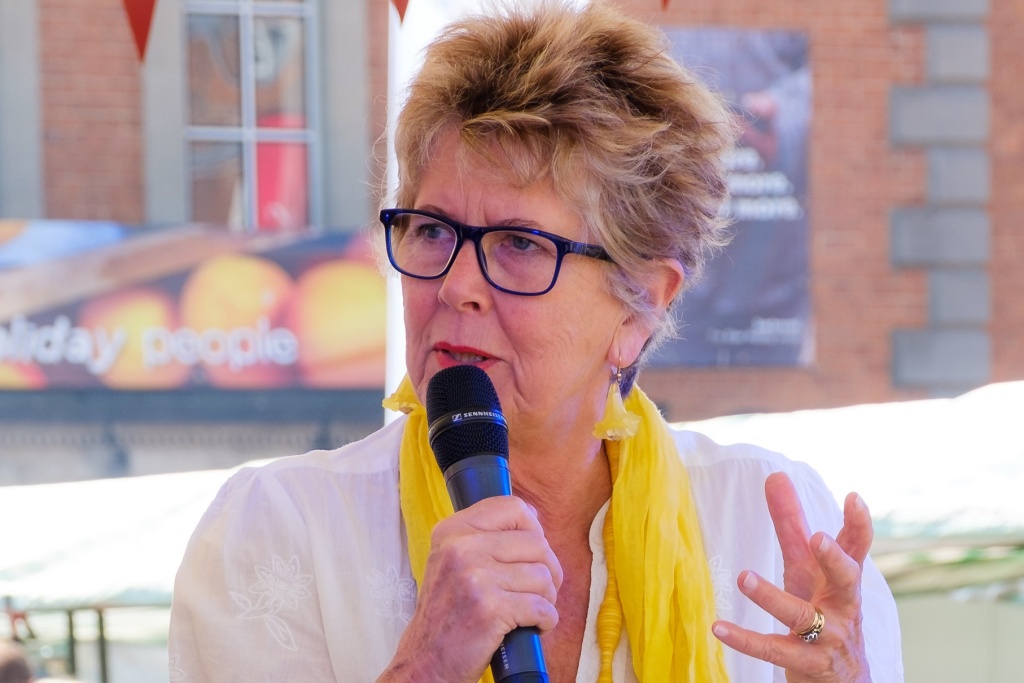Date: Thursday 6th October 2022
Release time: Immediate
Care Not Killing disappointed by ITV's "discriminatory and outdated" Emmerdale suicide storyline
Responding to the decision by ITV's Emmerdale programme to feature the suicide of Faith Dingle who is taking her own life because she is in the last stages of terminal cancer, Dr Gordon Macdonald, Chief Executive of Care Not Killing, commented:
"What a pity that ITV are yet again choosing to promote a view that dying and disabled people live terrible lives and have no option but to end them by suicide.
"This discriminatory and outdated view, pushed by a few campaigners, has no place in the modern world and certainly should not be promoted by one of our nation's most loved soap-operas.
"Changing the law to legalise assisted suicide and euthanasia would place huge pressure, real or perceived on terminally ill and disabled people to end their lives exactly as we see in the handful of places that have legalised assisted suicide or euthanasia.
"In the US State of Oregon, which has assisted suicide six in ten (59 per cent) of those ending their lives in 2019 cited the fear of being a burden on their families, friends and caregivers as a reason for seeking death and a further 7.4 per cent cited financial worries. There are other problems too.
"Legalising Physician Assisted Suicide also seems to normalise suicide in the general populations. Indeed, academics who looked at this emerging trend concluded that legalising assisted suicide was associated with an increase of 6.3 per cent in the numbers of suicides, once all other factors had been controlled. Among over 65s the figure was more than double that.
"While testimony from Professor Joel Zivot, casts doubt on the myth being put forward by those who want a change in the law that patients opting for the lethal cocktail of drugs die a quick and painless death. Evidence from Tennessee which uses the same drugs to kill people on death row as the ones used in Oregon suggest the inmates die from drowning in their own secretions or what doctors call a pulmonary oedema. The Professor goes on to explain why in US executions, even though the person is sedated first, before the lethal cocktail of drugs is administered, the authorities have to strap down both the person's hands and even their fingers to stop them moving.
"But it's not just in Oregon we see problems. In Canada, last year 1,700 people who were euthanised cited loneliness as a reason. At the same time limits on who could be killed, the so-called safeguards have been eroded or scrapped and the Government has talked about the millions of dollars introducing euthanasia has saved regional health budgets."
Dr Macdonald concluded:
"Perhaps next time they might talk to one of the UK's amazing hospices, palliative care doctors, or groups that actually look after the terminally ill and disabled people to hear about the reality of the lives of those dealing with conditions like cancer."
Ends
Editors Notes
Care Not Killing is a UK-based alliance bringing together over 40 organisations - human rights and disability rights organisations, health care and palliative care groups, faith-based organisations groups - and thousands of concerned individuals.
We have three key aims:
- to promote more and better palliative care;
- to ensure that existing laws against euthanasia and assisted suicide are not weakened or repealed;
- to inform public opinion further against any weakening of the law.
*As this story is dealing with suicide, please could we ask that you include details about organisations that offer help and support to vulnerable people who might be feeling suicidal such as the Samaritans, CALM or similar - Thank you.*






